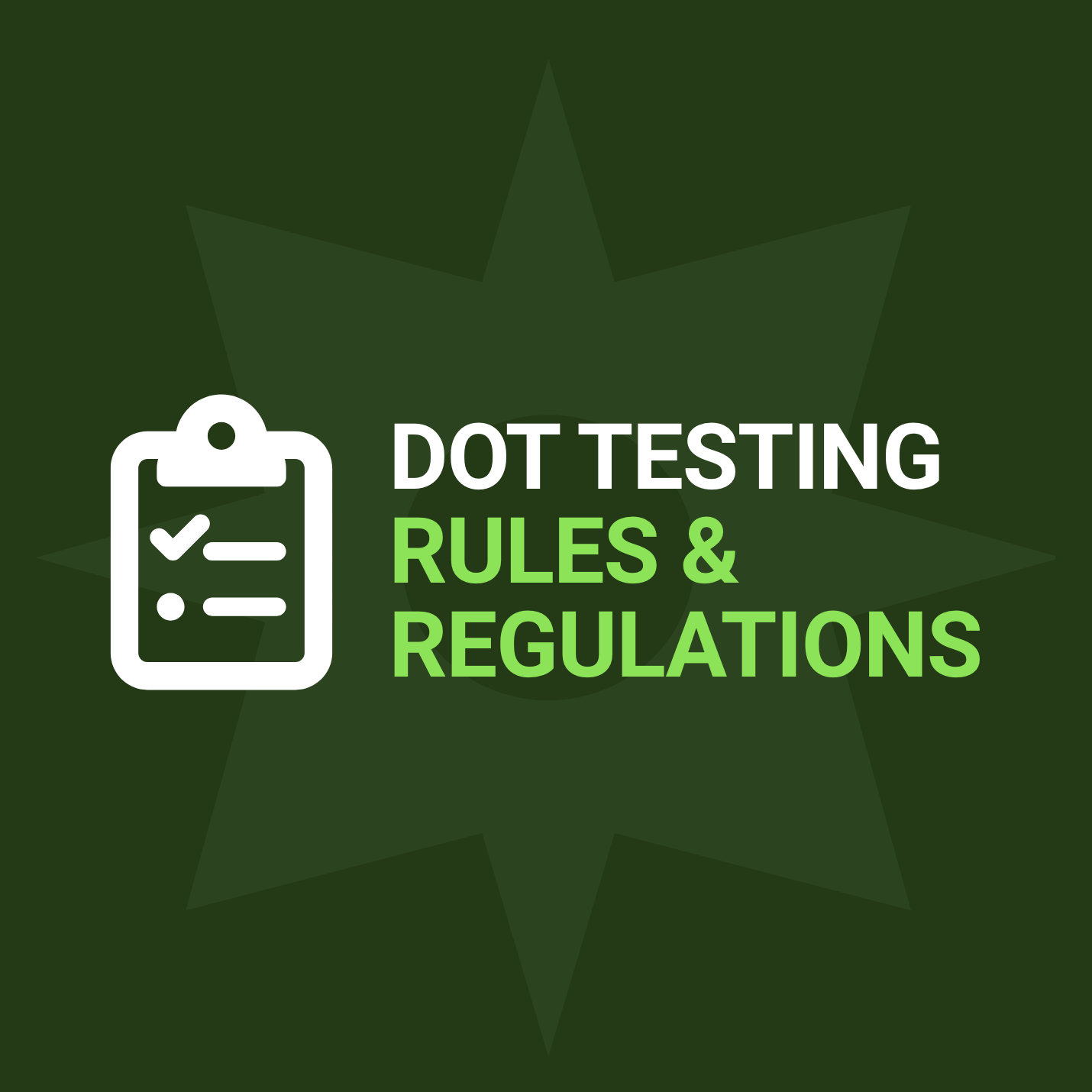In the fast-paced industries regulated by the U.S. Department of Transportation (DOT), safety is non-negotiable. Strict drug testing regulations are in place to promote accountability and maintain the same standard of safety across the entire industry. Whether you’re a fleet owner, a trucker, a pilot, or a railway worker, understanding DOT drug testing can be easy when partnering with Traverse. Let us help you understand complex DOT guidelines in a digestible way so that you can save time and money for your company without sacrificing safety and compliance.
The Pillars of Transportation Safety
The DOT’s mission with mandated drug testing is to protect America’s transportation systems, with a focus on safety through the reduction of substance abuse. This resonates on two levels:
For Employers:
- Risk Reduction: By implementing and enforcing a comprehensive drug testing program, employers can mitigate the significant risks associated with impaired driving and on-the-job accidents.
- Compliance Assurance: Adhering to DOT regulations ensures that companies are safe from the penalties of non-compliance, which can include fines, loss of operating license, damage to company reputation and even litigation.
For Employees:
- Personal and Public Safety: A vigilant drug testing policy safeguards the health and safety of the employees who operate these heavy-duty vehicles and, by extension, the public at large.
- Clear Expectations: Employees can perform their duties with the confidence that their co-workers are equally committed to safety, thus fostering a work culture of mutual trust and responsibility.
Unveiling DOT Drug Testing
DOT 5-panel drug tests detect the following drugs:
- Marijuana (THC)
- Cocaine
- Amphetamines
- Opioids (including heroin, codeine, and morphine)
- PCP
Rights, Responsibilities, and Repercussions
Employees subject to DOT drug testing have rights and responsibilities that should be clearly understood.
Rights
Employees’ rights under DOT drug testing regulations include the right to confidentiality in the handling and reporting of test results. They are also entitled to a fair and accurate testing process, which includes the ability to challenge or request a retest in the case of a positive result. Furthermore, employees have the right to be informed about the drug testing process, understand the implications of violations, and receive education and training related to drug and alcohol misuse.
Responsibilities
Conversely, the responsibilities of employees encompass the obligation to comply with all drug and alcohol testing requirements. This includes presenting themselves for testing when required, refraining from any behavior that could obstruct the testing process, and adhering to the policies set forth by their employer in accordance with DOT regulations.
Repercussions
The repercussions for failing to comply with DOT drug testing regulations can be severe. They can include:
- Employee’s Consequence: Violations of these rules can lead to severe repercussions, including immediate removal from safety-sensitive duties, mandatory participation in substance abuse recovery programs, and even termination of employment.
- Financial Penalties for Employers: Employers can face significant fines if their drug testing program does not meet DOT requirements.
- Business Complications: Operational disruptions, loss of customer trust, and harm to a company’s reputation.
Steering Toward Safety with Traverse
In the end, it’s not just about staying within the lines of the law; it’s about understanding the rules in a way that makes mandated processes seem like routine tasks. By staying informed, prepared, and dedicated to the cause, we can build a transportation sector that is safe, efficient, and robust with 100% peace of mind. Stay vigilant, stay compliant, and stay safe with Traverse! Contact our team today for any questions regarding drug testing rules and regulations for your company.